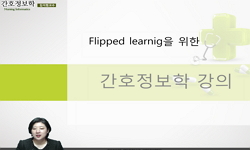1990년대초 이래 ‘한글과 컴퓨터’의 ?글은 세계 소프트웨어시장에서 유일하게 마이크로소프트의 MS워드를 제치고 75%이상의 국내시장을 지켜온 한국 소프트웨어산업의 경제적ㆍ문화적 상...
http://chineseinput.net/에서 pinyin(병음)방식으로 중국어를 변환할 수 있습니다.
변환된 중국어를 복사하여 사용하시면 됩니다.
- 中文 을 입력하시려면 zhongwen을 입력하시고 space를누르시면됩니다.
- 北京 을 입력하시려면 beijing을 입력하시고 space를 누르시면 됩니다.
https://www.riss.kr/link?id=A76125579
- 저자
- 발행기관
- 학술지명
- 권호사항
-
발행연도
2003
-
작성언어
Korean
- 주제어
-
등재정보
KCI우수등재
-
자료형태
학술저널
- 발행기관 URL
-
수록면
409-429(21쪽)
- 제공처
- 소장기관
-
0
상세조회 -
0
다운로드
부가정보
국문 초록 (Abstract)
1990년대초 이래 ‘한글과 컴퓨터’의 ?글은 세계 소프트웨어시장에서 유일하게 마이크로소프트의 MS워드를 제치고 75%이상의 국내시장을 지켜온 한국 소프트웨어산업의 경제적ㆍ문화적 상징이었다. 그런데 1990년대 후반 들어 경영난에 봉착한 ‘한글과 컴퓨터’는 마이크로소프트의 투자를 받아들이는 대신 주력사업이었던 아래아한글을 포기하는 결정을 내리게 되었다. 이러한 계약내용이 일반 국민에게 알려지자, 이에 대한 국민적 반대가 심하게 제기되었고, 더 나아가 아래아한글을 살리기 위한 거국적인 운동이 일어나게 되었다. 이 글은 1998년 6월 한국 소프트웨어 산업에서 발생했던 ‘아래아한글살리기운동’을 정보화시대 한글민족주의의 사례로서 개념화하고, 그 이면에 존재했던 정치경제학적 동학을 분석하였다. 우선, 이 글은 아래아한글살리기운동이 한국 소프트웨어산업의 장래에 보여준 가능성과 한계를 살펴봄으로써 향후 정보산업 분야의 전략적 지침으로 삼고자 하였다. 또한 이 글은 아래아한글살리기운동의 표면적인 성공에도 불구하고, 아래아한글이 좌절의 길을 걸을 수밖에 없게 했던 소프트웨어산업의 구조를 체계적으로 탐구하였다. 아울러 이 글은 한국의 소프트웨어산업의 제도적 환경을 제공했던, 한글코드의 표준화 정책과 지적재산권 레짐에 대해서도 검토하였다.
다국어 초록 (Multilingual Abstract)
Since the early 1990s, "Hangul," the Korean-language word processing software produced by "Hangul and Computer," had protected the Korean market against Microsoft's Korean-language "Word" by commanding more than 75 percent of the market share. Indeed,...
Since the early 1990s, "Hangul," the Korean-language word processing software produced by "Hangul and Computer," had protected the Korean market against Microsoft's Korean-language "Word" by commanding more than 75 percent of the market share. Indeed, the Koreans had regarded "Hangul" as a symbol of industrial independency and the Korean culture. Due to financial pinch in the late 1990s, however, "Hangul and Computer" decided to stop producing its word processing software in return for an investment by Microsoft. The Korean public was outraged by the news and began to mobilize a nation-wide campaign to save "Hangul." This paper explores the political and economic dynamics of the so-called "Movement to Save Hangul" in June of 1998, conceptualized as a case of the "linguistic nationalism" of Korea in the information age. First, the paper examines the achievements and limitations of the Movement and explores the Movement's implications for Korea's strategies in information industries of the future. Second, it systematically analyzes the structural forces in the global software industry, which had eventually frustrated "Hangul" in spite of the early success brought by the Movement. Finally, this paper examines the government's standardization policies for Korean character code and the regimes for intellectual property rights, which were not successful in providing a favorable environment for the survival of "Hangul."
목차 (Table of Contents)
- 논문요약
- Ⅰ. 머리말
- Ⅱ. 아래아한글살리기운동의 관념과 전개
- Ⅲ. 소프트웨어산업의 표준경쟁
- Ⅳ. 소프트웨어산업의 정책과 제도
- 논문요약
- Ⅰ. 머리말
- Ⅱ. 아래아한글살리기운동의 관념과 전개
- Ⅲ. 소프트웨어산업의 표준경쟁
- Ⅳ. 소프트웨어산업의 정책과 제도
- Ⅴ. 맺음말
- 참고문헌
- 영문 초록
동일학술지(권/호) 다른 논문
-
- 한국정치학회
- 전세영(Jeon Sae-Young)
- 2003
- KCI우수등재
-
- 한국정치학회
- 김대영(Dae-Young Kim)
- 2003
- KCI우수등재
-
- 한국정치학회
- 조중빈(Choong-Bin Cho)
- 2003
- KCI우수등재
-
- 한국정치학회
- 안용흔(Yong Heun An)
- 2003
- KCI우수등재





 DBpia
DBpia







